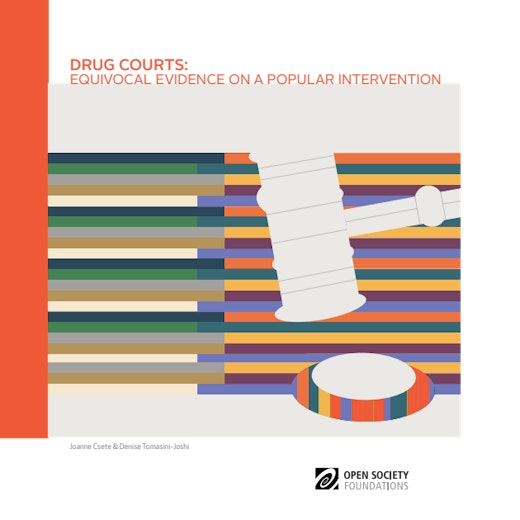As member states of the United Nations take stock of the drug control system, a number of debates have emerged among governments about how to balance international drug laws with human rights, public health, alternatives to incarceration, and experimentation with regulation. This series intends to provide a primer on why governments must not turn a blind eye to pressing human rights and public health impacts of current drug policies.
Drug treatment courts, also called “drug courts,” are meant to offer court-supervised treatment for drug dependence to people who would otherwise go to prison for a drug-related offense. Some countries have adopted drug treatment courts as a way to reduce drug-related incarceration.
While there is considerable consensus in UN and other multilateral policies and statements that there should be an alternative to criminal sanctions for some categories of drug infractions, drug treatment courts are not specified as the only or principal means of providing that alternative, and there is no international law or treaty explicitly addressing drug courts.
In spite of good intentions, these courts do not represent reform if they undermine health and human rights, if they put health decisions in the hands of judges and prosecutors who reject clinically indicated treatment, or if they impose punishment for relapses that are a normal part of drug dependence.
Drug Courts: Equivocal Evidence on a Popular Intervention explores what the UN and other multilateral bodies say about drug courts, reviews the drug court experience in the United States and around the world, and examines other ways to avert incarceration for minor drug offenses.
Download
-
Drug Courts: Equivocal Evidence on a Popular Intervention (254.28 Kb pdf file)
Download the complete 20-page report. (Updated: September 28, 2016)
-
Tribunales de Drogas: Pruebas Contradictorias Sobre una Intervención Popular (264.29 Kb pdf file)
Download the complete 20-page report in Spanish.
-
薬物裁判所: その定評ある介入手段に対する曖昧なエビデンス (518.47 Kb pdf file)
Download the complete 20-page report in Japanese.
